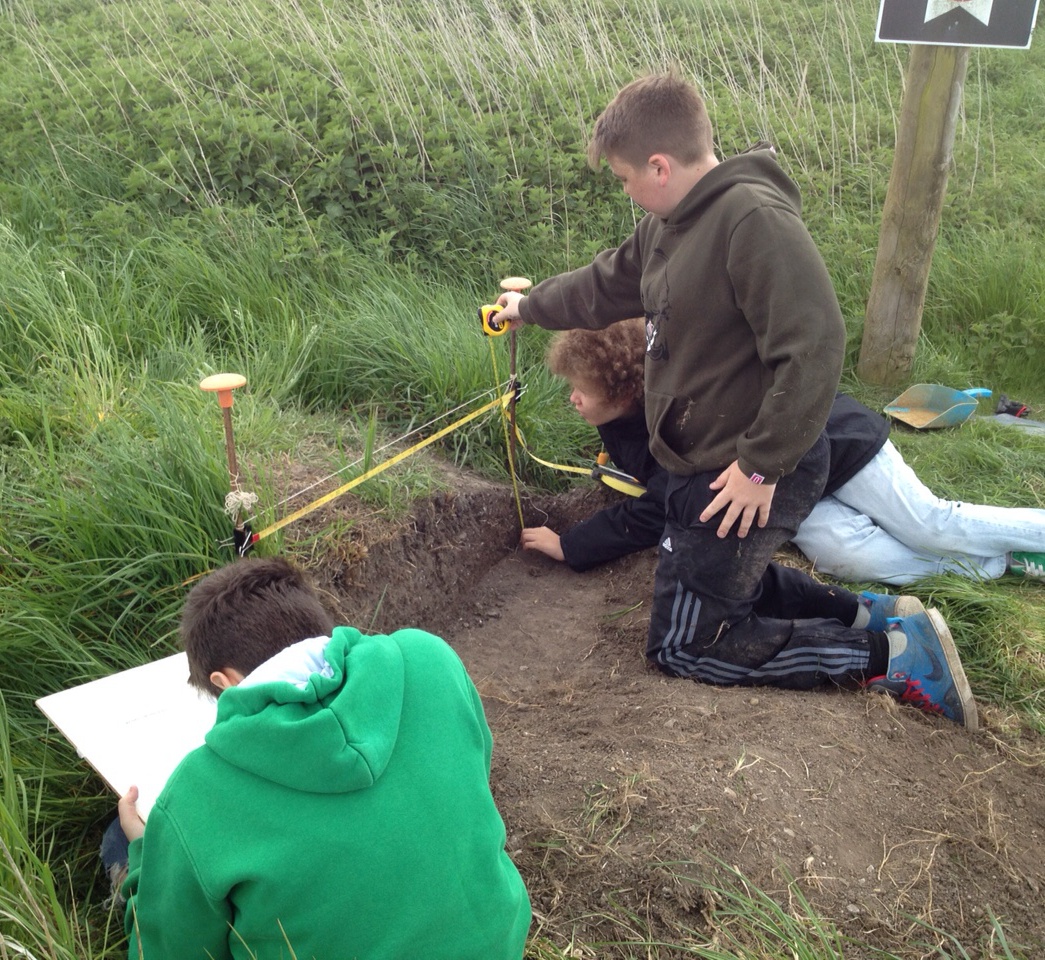
Wessex Archaeology (WA) has been supporting the Jon Egging Trust’s (JET) Blue Skies Programme once again this year, providing exciting learning experiences to inspire young people to achieve their full potential.
Level one students kicked off their archaeological education with an interactive tour of the WA head office in Salisbury. The day started with an introduction to archaeology and an impressive whiz through the last 900,000 years by Kirsten Egging Dinwiddy, one of our Osteoarchaeologists. The young people then split into groups to explore our environmental archaeology department and artefact processing lab as specialists gave talks and demonstrations on sample sieving, fieldwork, human skeletal remains and coastal & marine archaeology. The highlight of the day was getting hands on with flint tools and learning how to use them under the tuition of Phil Harding.

The following week, the level one students put their knowledge into practice on a visit to Chisenbury Midden, a mound of Iron Age feasting waste on Salisbury Plain, organised by WA and the Defence Infrastructure Organisation (DIO). Working in groups, the young people had a chance to try excavation techniques and archaeological recording processes. Finds included animal bones, examples of worked and burnt flint, and several pieces of Iron Age pottery. Students were then able to wash their own artefacts and compare them to previous finds from the site.
Students taking part in level two of the Blue Skies Programme took part in a geophysical survey day on Salisbury Plain, organised by WA and DIO and supported by members of Operation Nightingale. The day was themed on WWI and focused on using geophysical survey techniques to reveal information about a complex system of WWI practice trenches, designed to be a replica of the German trench system at the Somme. The young people were trained to use geophysical survey equipment and took part in both magnetometry and resistivity surveys, led by experts from WA and Winchester University. Other activities included comparing rations and kit from WWI to modern equivalents, hearing a soldier’s perspective of frontline warfare, and exploring the extant remains of the practice trenches nearby.
The students will celebrate the achievements they have made through the Blue Skies Programme at a presentation ceremony in June, and we look forward to congratulating them then.
By Laura Joyner, Community & Education Officer